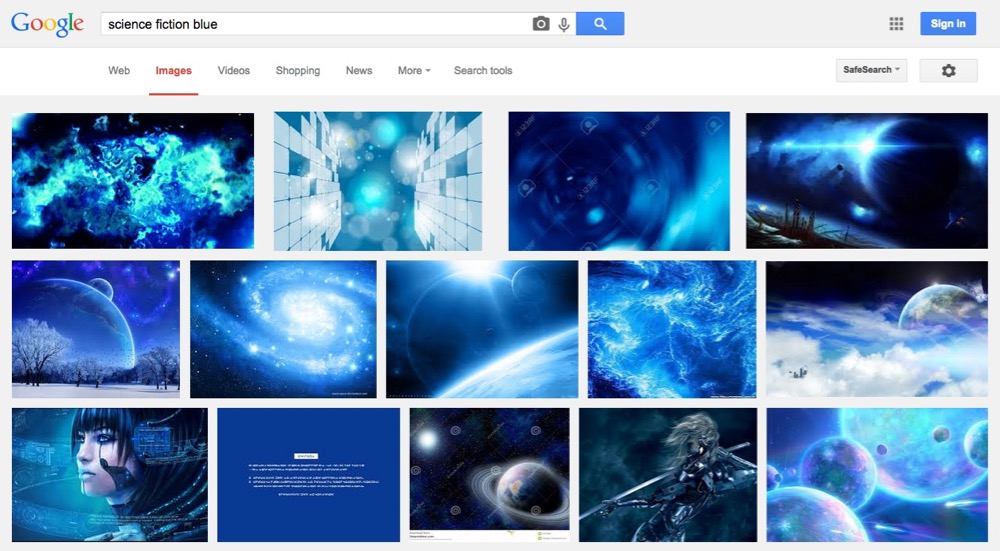The suffocating genre-blue: On being wrong
I feel compelled to write about science fiction, which is something I really don’t know much about. Whilst recently bedridden with the flu I watched more episodes of Battlestar Galactica than I care to relate. Suffice to say that by the time wellness again washed through me, my mind was a loop of Bear McCreary and Richard Gibbs’ musical themes from the series – all taiko drums, mantras and the piercing, single note repeated in the theme for Cylon Number Six.
The reason I don’t know much about science fiction is because, despite my curiosity for most things, I used to ignorantly reject it on artistic grounds. I dismissed it as the ‘blue’ genre, just as fantasy was the ‘brown’ genre. These pervading colour-ways were indicative of limiting, banal and recurring narratives I did not want to subject myself to inhabiting, I thought.
Battlestar was indeed blue, but I pressed on and on, further into its operatic scope; its faster-than-light jumps and bleak, AI dystopia filled with flawed characters. Yet Battlestar ended very badly, in an overblown, mawkish, simplistic way. In its worst moments, it was filled with bright, life-affirming green that made me actually pine for the return of the suffocating blue genre I had always scorned.
I also realised I was quite wrong about the colour genre assignations when I finally read Ursula Le Guin’s The Left Hand of Darkness, which is overwhelmingly white: a swirling, overwhelming, devastating blizzard of a book which encases you in a deep, white blanket of sorrow. These misconceptions prove to me in a very humbling way that you can construct a deeply ignorant critique of complex things via visually trained excuses.
